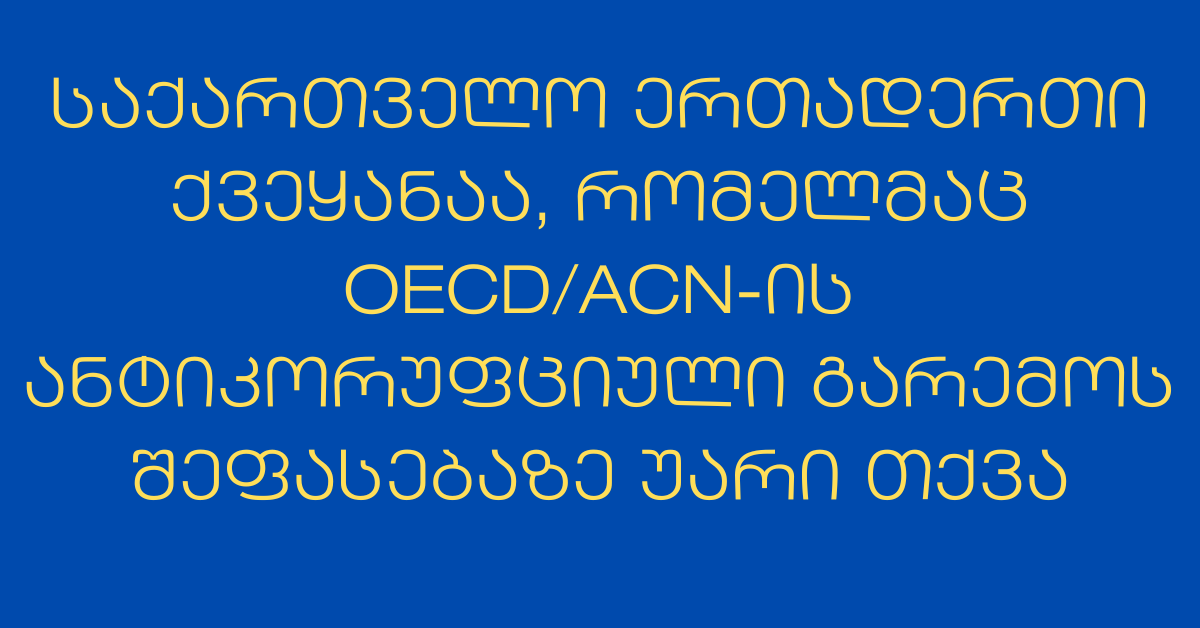NEWS

For the first time in 20 years, the Government of Georgia opted out of participating in the monitoring round of the OECD's Anti-Corruption Network for Eastern Europe and Central Asia (OECD/ACN). Georgia is the only country that did not endorse the monitoring, unlike Ukraine, Moldova, Armenia, Azerbaijan, Kazakhstan, Kyrgyzstan, Uzbekistan, Tajikistan, and Mongolia.
The OECD/ACN monitoring aims at conducting a comprehensive assessment of the country's anti-corruption environment, identifying challenges, and issuing relevant recommendations. Monitoring has been carried out since 2003 within the framework of the Istanbul Action Plan (IAP) peer review program and involves the continuous monitoring of the implementation of the United Nations Convention against Corruption (UNCAC), other international standards and best practices by member countries.
The 5th Monitoring Round envisaged to assess the following key anti-corruption areas:
- Development and implementation of the National Anti-corruption Policy;
- Enforcement of the Law on Corruption in practice, including the public officials’ asset declarations system;
- Functioning of Judiciary and prosecution systems;
- The effectiveness of investigation of high-level corruption cases.
Assessing the country's anti-corruption environment and identifying challenges in the respective directions would be critically important for the newly established Anti-corruption Bureau. The Bureau is tasked with developing the National Anti-corruption Strategy, which has been absent for the past three years.
The Georgian government's refusal to participate in OECD/ACN monitoring not only undermines the country’s reputation but also casts doubts on the progress of anti-corruption reforms. Suspending anti-corruption reforms directly contradicts Georgia's aspirations for EU integration, as the implementation of anti-corruption reforms is part of the Georgia-EU Association Agreement.
It is worth noting that the OECD/ACN monitoring process is supported by the European Union, and in the case of Georgia, it might have implications for the decision regarding the granting of candidate status. Most recently, the European Commissioner for Neighborhood Policy and Enlargement, Olivér Várhelyi also called on the Georgian government to reconsider its decision to withdraw from the OECD anti-corruption network.
The signatory organizations call on the Government of Georgia to resume participation in the monitoring process initiated under the Istanbul Action Plan (IAP) program and to continue cooperation with the OECD's Anti-Corruption Network for Eastern Europe and Central Asia (OECD/ACN).
Transparency International Georgia (TI Georgia)
Institute for Development of Freedom of Information (IDFI)
Georgian Young Lawyers Association (GYLA)
Governance Monitoring Center (GMC)
SHARE: